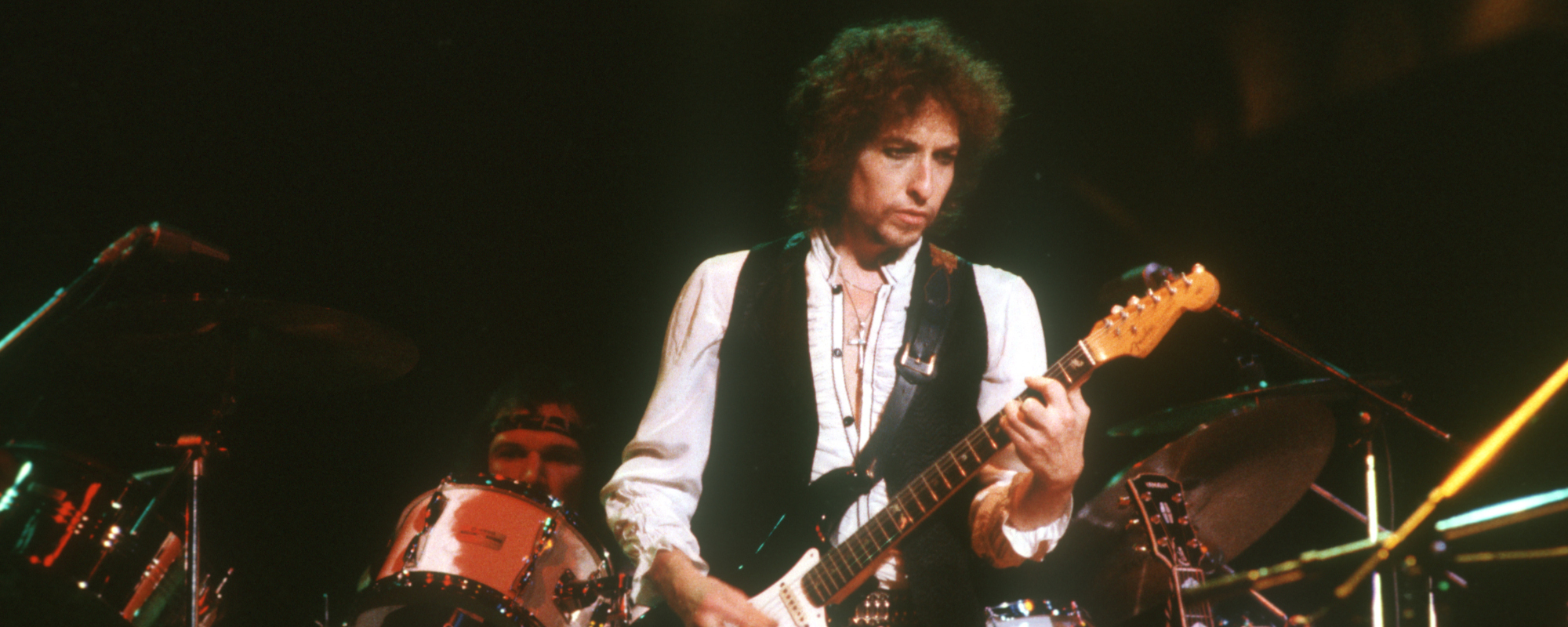As a master of documenter of his own autobiographical prose, there was one song Bob Dylan wrote that revealed more than he expected, and the only one he regretted writing. Featured on Dylan’s 1964 album Another Side of Bob Dylan, “Ballad in Plain D” and was a direct recount of the disintegration of his relationship with then-girlfriend Suze Rotolo.
“That one I look back and I say, ‘I must have been a real schmuck to write that,’” said Dylan of the song in 1985. “I look back at that particular one and say, of all the songs I’ve written, maybe I could have left that alone.”
Videos by American Songwriter
[RELATED: On This Day: Bob Dylan’s Releases His First Single “Mixed-Up Confusion”]
Sibling Rivalry
Through some of Dylan’s other personal songs, from “Sara,” the closing Desire track about first wife Sara Lownds to “Day Of The Locusts,” chronicling the high-pitched buzz by cicadas clicking as he received an honorary degree in music from Princeton University in 1970, the “Ballad in Plain D” was even more direct.
Also the longest on the labum, running eight minutes, 18 seconds, “Ballad in Plain D” was a direct account of a argument between Dylan and Rotolo’s mother Mary Rotolo, and parasitic sister Carla.
I once loved a girl, her skin it was bronze
With the innocence of a lamb, she was gentle like a fawn
I courted her proudly but now she is gone
Gone as the season she’s taken
In a young summer’s youth, I stole her away
From her mother and sister, though close did they stay
Each one of them suffering from the failures of their day
With strings of guilt they tried hard to guide us
Of the two sisters, I loved the young
With sensitive instincts, she was the creative one
The constant scrapegoat, she was easily undone
By the jealousy of others around her
For her parasite sister, I had no respect
Bound by her boredom, her pride to protect
Countless visions of the other she’d reflect
As a crutch for her scenes and her society
Myself, for what I did, I cannot be excused
The changes I was going through can’t even be used
For the lies that I told her in hopes not to lose
The could-be dream-lover of my lifetime

“She was just my type.”
Dylan regretted being so blunt on “Ballad in Plain D” about what happened with Rotolo, who appeared arm-in-arm with him on the cover of his 1963 album The Freewheelin’ Bob Dylan.
The two first met during a folk concert at Riverside Church in New York City in the summer of 1961. “Right from the start I couldn’t take my eyes off her,” said Dylan of their first meeting. “She was the most erotic thing I’d ever seen. She was fair-skinned and golden-haired, full-blood Italian … We started talking and my heart started to spin. She was just my type.”
Rotolo went on to inspire several of Dylan’s other songs during their relationship, including “One Too Many Mornings,” “Tomorrow Is A Long Time,” “Don’t Think Twice It’s Alright,” and “Boots of Spanish Leather.”
Deeper into “Ballad in Plain D,” Dylan describes the demise of their relationshp and some of his own faults.
Myself, for what I did, I cannot be excused
The changes I was going through can’t even be used
For the lies that I told her in hopes not to lose
The could-be dream-lover of my lifetime
With unseen consciousness, I possessed in my grip
A magnificent mantelpiece, though its heart being chipped
Noticing not that I’d already slipped
To the sin of love’s false security
From silhouetted anger to manufactured peace
Answers of emptiness, voice vacancies
‘Till the tombstones of damage read me no questions but, “Please
What’s wrong and what’s exactly the matter?“
Free?
By the end, Dylan faces regret, unvoiced apologies, and friends asking how it feels to be “free.”
The wind knocks my window, the room it is wet
The words to say I’m sorry, I haven’t found yet
I think of her often and hope whoever she’s met
Will be fully aware of how precious she is
Ah, my friends from the prison, they ask unto me
“How good, how good does it feel to be free?”
And I answer them most mysteriously
“Are birds free from the chains of the skyway?”
“People have asked how I felt about those songs that were bitter, like ‘Ballad in Plain D’, since I inspired some of those too, yet I never felt hurt by them,” said Rotolo, who died at 67 in 2011 from lung cancer. “I understood what he was doing. It was the end of something and we both were hurt and bitter.”
Rotolo added, “His art was his outlet, his exorcism. It was healthy. That was the way he wrote out his life; the loving songs, the cynical songs, the political songs, they are all part of the way he saw his world and lived his life, period.”
Photo: Chris Wood/Express/Getty Images













Leave a Reply
Only members can comment. Become a member. Already a member? Log in.